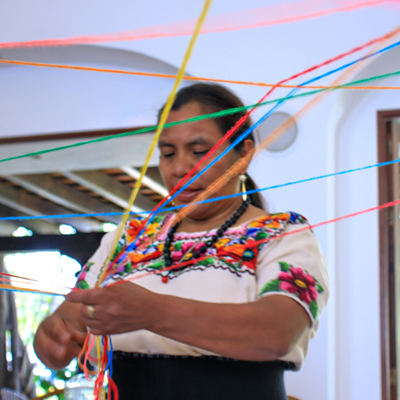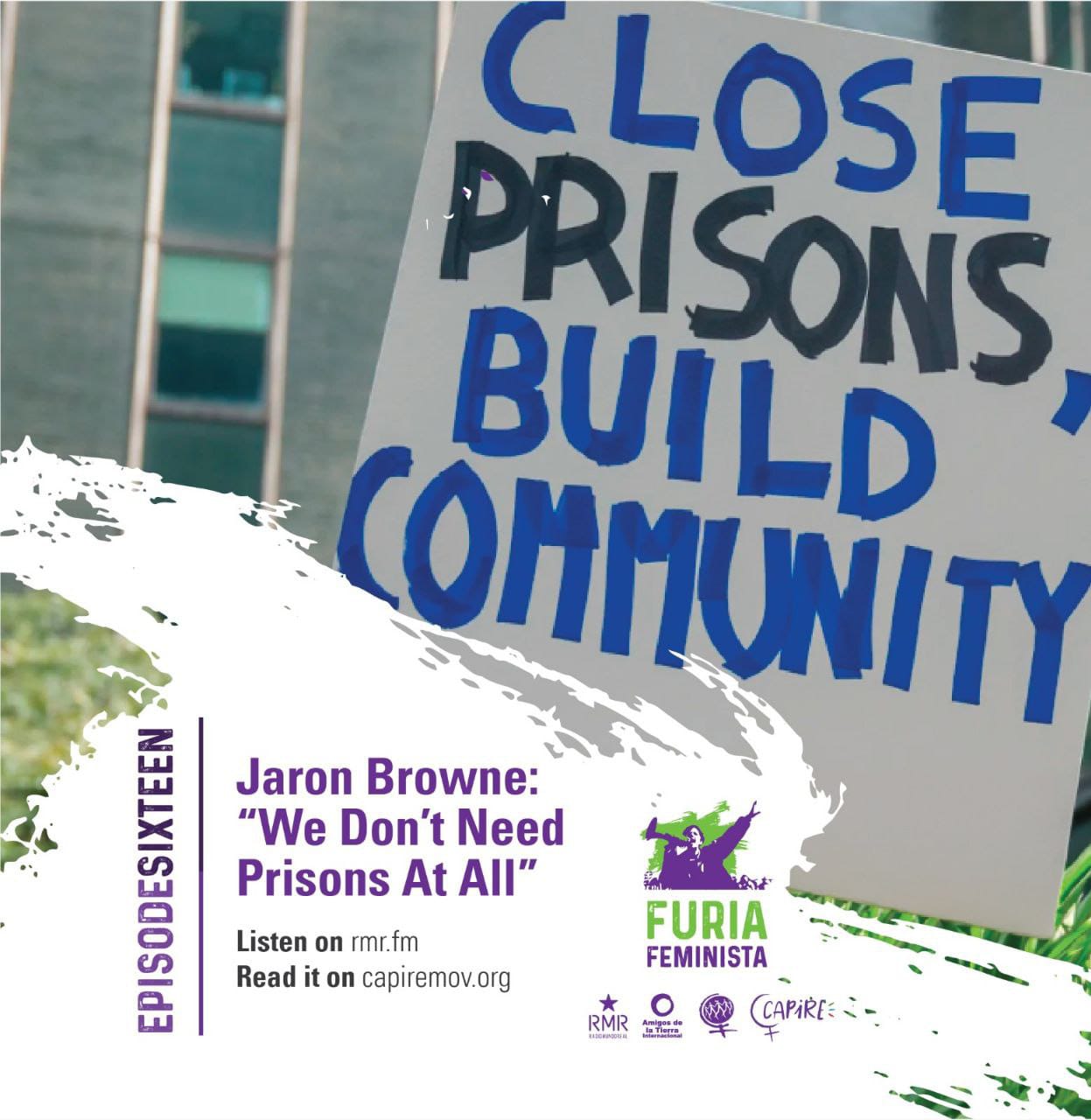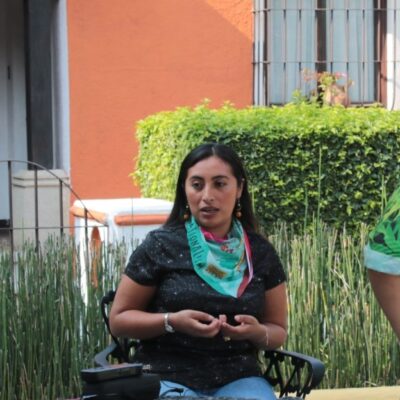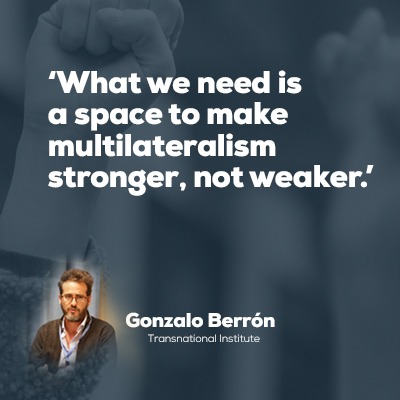Honduras: At least eight socio-environmental defenders murdered in one month
Interview with Elsy Banegas, social activist and COPA coordinator
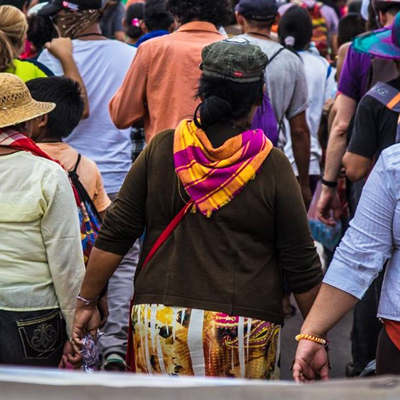 RMR - Movilización en Tegucigalpa 2016
RMR - Movilización en Tegucigalpa 2016
A week into 2023, Jairo Bonilla and Alí Domínguez were murdered while working in Concepción, Colón Department, in Honduras, a few kilometres from their community, Guapinol. Both were defenders of the Guapinol and San Pedro rivers, and the Botaderos National Park, also called Carlos Escaleras, the source of 34 bodies of water.
10 days later in the same region, Omar Cruz – president of the peasant cooperative Los Laureles and member of the Agrarian Platform of Valle Aguán – and his father-in-law Andy Martínez, were also murdered.
Garífuna ancestral communities have also been the target of persecution and assassinations. In January, three young women, Janahira Aranda, Ana Castillo and Cristy Espinosa, from Travesía were murdered in their community near Puerto Cortés. The month ended with yet another murder: socio-environmental leader Ricardo Arnaúl Montero, a Garífuna member of the Committee for the Defense of the Land of Triunfo de la Cruz. This is the same community from which four Garífuna defenders disappeared over two years ago.
A paradox: when the defence of life means death
The interest in land and water sources in Honduras are numerous and they all affect the communities that live on the land. Extractivism, in particular mining and agro-industrial projects, the United States; meddling, elite tourism that craves the Caribbean Sea coast, the network of impunity and the friends of former president, Juan Orlando Hernández remaining since his extradition to stand trial for drug trafficking, all converge on Honduras and exert their violence in various forms: persecution, threats, harassment, criminalisation and cold-blooded murders.
Real World Radio interviewed Elsy Banegas, member of the Union of Workers of the National Agrarian Institute (SITRAINA) and General Coordinator of the Coordination of Popular Organisations of Aguan (COPA). COPA is made up of peasant, trade union and women’s organisations from the Aguán region, an area that has almost lost count of the number of deaths resulting from defending the right to land, nature and human rights.
Banegas has experienced firsthand the logic embedded in this region by the Honduran oligarchy to grab their land. Her son, Fernando Alemán Banegas, was murdered in October 2016. The structure of violence and impunity rooted in the history of Honduras is what allows hitmen, paramilitary officers and security forces for mining and agribusiness corporations to hold siege in these areas.
The COPA coordinator said that Valle Aguán was included in a process for agrarian reform “that could guarantee peasant families a way of life that would allow social justice in the countryside, through land tenure.” But, according to the leader, over the years various business interests have prevented its realisation and the governments “have always strived to favour the national oligarchy.” Since 2014, COPA has been granted precautionary measures by the Inter-American Commission on Human Rights (IACHR) because of the endless violence, but this has not prevented the murders. This is the daily reality for Banegas and her organisation: mining and agribusiness corporations continue to exert pressure on governments and threaten peasants.” There is some kind of political will because agreements are signed … but the reality is different.”
A history of impunity
“The defenders of rivers are in jail, but those responsible for the looting and high rates of corruption in the country walk free.” This is how Banegas summarises Honduras’ history of impunity. History is made up of injustices and corruption, but also of struggles and resistance to change that reality and memories that keep those struggles ever present.
Botadero National Park was renamed Carlos Escaleras in 2014, following a ruling by the Inter-American Court of Human Rights (IACHR), which held the Honduran State responsible for the 1997 murder of Escaleras, an activist who fought against a palm oil extraction plant inside the park, near the Guapinol River. Today, there are plans for an iron pellet plant belonging to mega-mining project Inversiones Los Pinares, which the community of Guapinol is resisting. Los Pinares is owned by Lenir Perez, a major beneficiary of the “Narco-State” left behind by Hernandez.
The company is part of the EMCO capital conglomerate, which also owns ECOTEK, the largest iron oxide processing plant in Central America. According to the organised community of Guapinol, ECOTEK operates within the Botadero National Park protected area without an environmental license.
“We are defending water and with that we are defending life,” Banegas said with conviction, making reference to the tools used by the Honduran powers to force them give up their struggle. “It starts with a discrediting process, then they try to buy leaders. When they can’t buy you… they try to criminalise you through lies, made-up stories and processes ordered by the mining or agro-industrial companies. If they don’t succeed, they kill you.”
As a response to the murders, several national organisations including the Civic Council of Popular and Indigenous Organisations of Honduras (COPINH), the Coalition Against Impunity in Honduras, the Municipal Committee in Defence of Common and Public Goods, and global entities such as Amnesty International and the Inter-American Commission on Human Rights, issued statements of solidarity and demanded independent investigations.
Banegas said that they have not yet received concrete responses to these petitions and demands, although they have already filed complaints in the necessary places. However, she stressed that they will persist with their claims.
Empty words and no justice
The impartiality of the police and the justice system is not guaranteed in Honduras and there are several reasons for mistrust. Immediately following the murders of Alí and Jairo, t police forces said that the deaths were the result of a robbery and ruled any link to environmental issues. This was fiercely rejected by the organised community of Guapinol.
On 2 February, the Guapinol community issued a statement, “There is no trust in either the Public Prosecutor’s Office or the Tocoa Police to conduct an independent investigation on this case. They have already showed their bias and are responsible for using illegal evidence to criminalise defenders in the area, including Alí, and for violently evicting the Water and Life Campsite in Guapinol. On 19 January, the family of Alí Domínguez requested that the case be transferred to the Prosecutor’s Office for Crimes Against Life with the support of the ATIC [Technical Agency for Criminal Investigation], but the Attorney General has not responded.”
Ali Domínguez was one of the 32 activists prosecuted for defending the river in 2018 when Los Pinares was attempting to install its iron oxide mine. It is no coincidence that the prosecutor who sent them to jail is the very same one dealing with the murder cases today.
It is a similar story with the police. Banegas says that on 9 January, while DINANT’s private security forces threw gas and bullets at the families of El Chile Cooperative, the police looked on and even laughed. It is worth mentioning here that the DINANT agribusiness and ultra-processed food company is owned by the Facussé family of businessmen, the same family against Escaleras fought in the 90s.
Both the Attorney General’s Office and the Public Prosecutor’s Office were appointed by the government of Juan Orlando Hernández. Under the banner of the Constitution, both powers act with total impunity. Currently, Honduras is undergoing an electoral process for a new Supreme Court of Justice. The appointment of a new Prosecutor is still to be defined, but it does give Hondurans hope for a better judicial system.
Yesterday and today the Aguán resists, without exception.
“With the new government, there is still hope that in this second year of the government in office we can really find alternatives, but throughout this year, we have seen, felt and suffered the violence of these companies.”
The Honduran National Secretariat of Human Rights travelled to the territory when the January murders came to light where they held a press conference on 23 January,.
Banegas mentioned that in February 2022 an agreement was signed between the Secretariat of Development and Social Inclusion, the Secretariat of Security, the National Agrarian Institute and 29 agrarian cooperatives, “to solve the Agrarian Conflict related to the Recovery of Agrarian Reform Lands in Bajo Aguán.” In July 2022, the Agrarian Platform, made a new petition, based on this agreement, to put an end to the violence, provide access to their lands and achieve justice.
The Aguán communities work closely with the Black Honduran Fraternal Organisation (OFRANEH) and the Garífuna communities that suffer the same situation of dispossession and violence, several kilometres further North.
“We are demanding justice and clarifications, that megaprojects such as the one of Los Pinares be cancelled, and that agrarian reform lands be handed over to the peasants who were illegally dispossessed,” said Banegas. “Our peaceful struggle is based on legitimate rights … and we are victims of the violence that is being imposed on us.”



